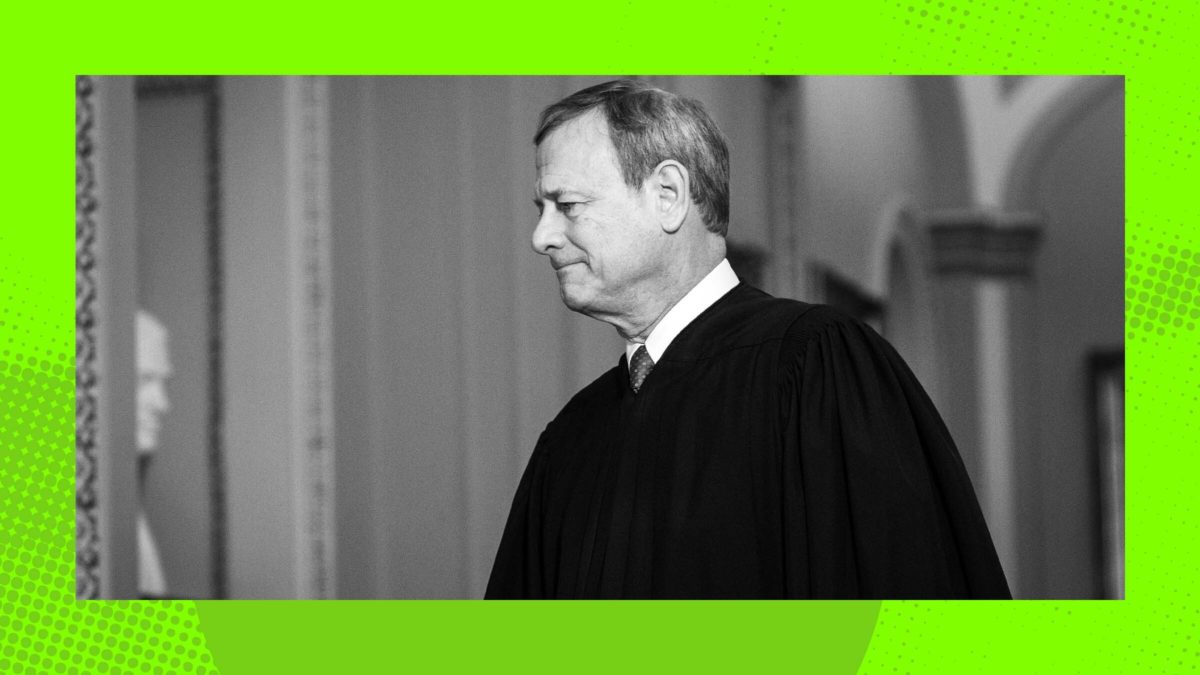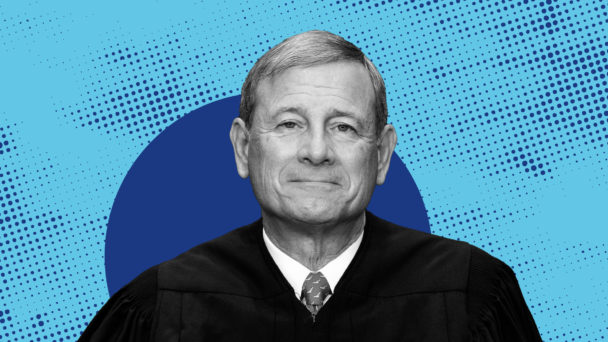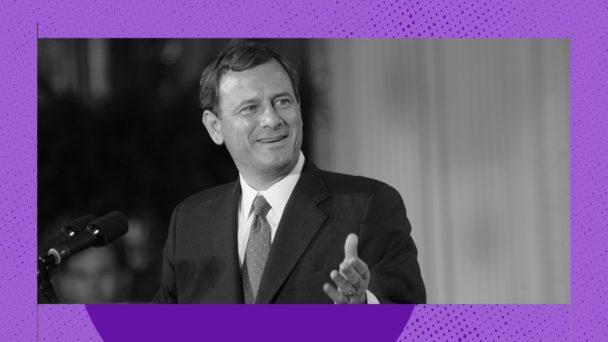In July, the Supreme Court ruled along party lines that presidents are “absolutely immune from criminal prosecution” for acts that are within their “exclusive constitutional power.” The six Republican justices also held that presidents are “at least presumptively immune” from prosecution for their “official acts,” too. Translated out of the original legalese, the Supreme Court declared the president is above the law.
This alone would be sufficient to grant Trump v. United States immediate entry into the jurisprudential Hall of Shame as one of the Court’s most disgraceful decisions of all time. To make matters worse, the Court did not even bother to define “official acts,” which means the full scope of criminal conduct now insulated from prosecution is unclear.
Still, some conclusions can be drawn, and the resulting picture is ugly. Justice Sonia Sotomayor, joined by the other liberal justices in dissent, gave a few examples of the kind of behavior blessed by the majority opinion: “Orders the Navy’s Seal Team 6 to assassinate a political rival? Immune,” she wrote. “Organizes a military coup to hold onto power? Immune. Takes a bribe in exchange for a pardon? Immune. Immune, immune, immune.”
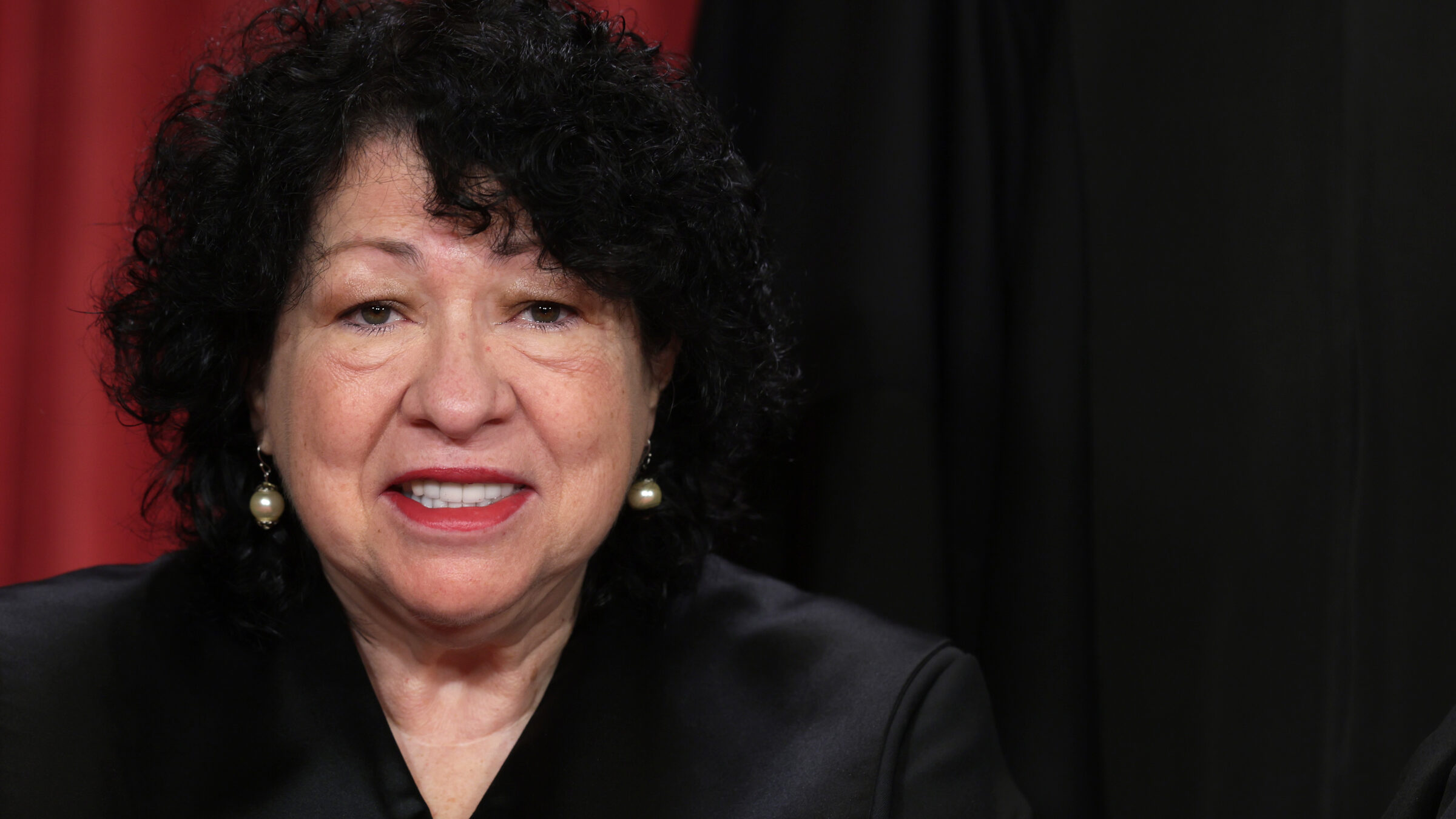
Having to read this horseshit (Photo by Alex Wong/Getty Images)
By removing these basic guardrails from the presidency, and by reserving for itself the power to decide when a president can be held accountable, the Republican supermajority effectively claimed the authority to coronate their preferred presidents as kings. The Trump v. United States decision has no legitimate legal basis, and it is little wonder that 7 in 10 Americans think the Supreme Court is influenced more by ideology than impartiality: Basically everyone can tell decisions like Trump v. United States are nakedly partisan—everyone, that is, but for the Republican justices, who apparently thought they were doing a bang-up job.
This is a key takeaway from a New York Times report published on Sunday, which details the myriad ways Chief Justice John Roberts steered three of this term’s landmark cases related to the January 6 insurrection to most benefit Donald Trump. The reporting reveals how the chief’s conservative colleagues hyped him up for doing so: Two days after receiving Roberts’s draft of Trump v. United States, Justice Brett Kavanaugh congratulated him on an “extraordinary opinion.” He continued, “Thank you again for your exceptional work.” Justice Neil Gorsuch soon followed suit: “I join Brett in thanking you for your remarkable work.”
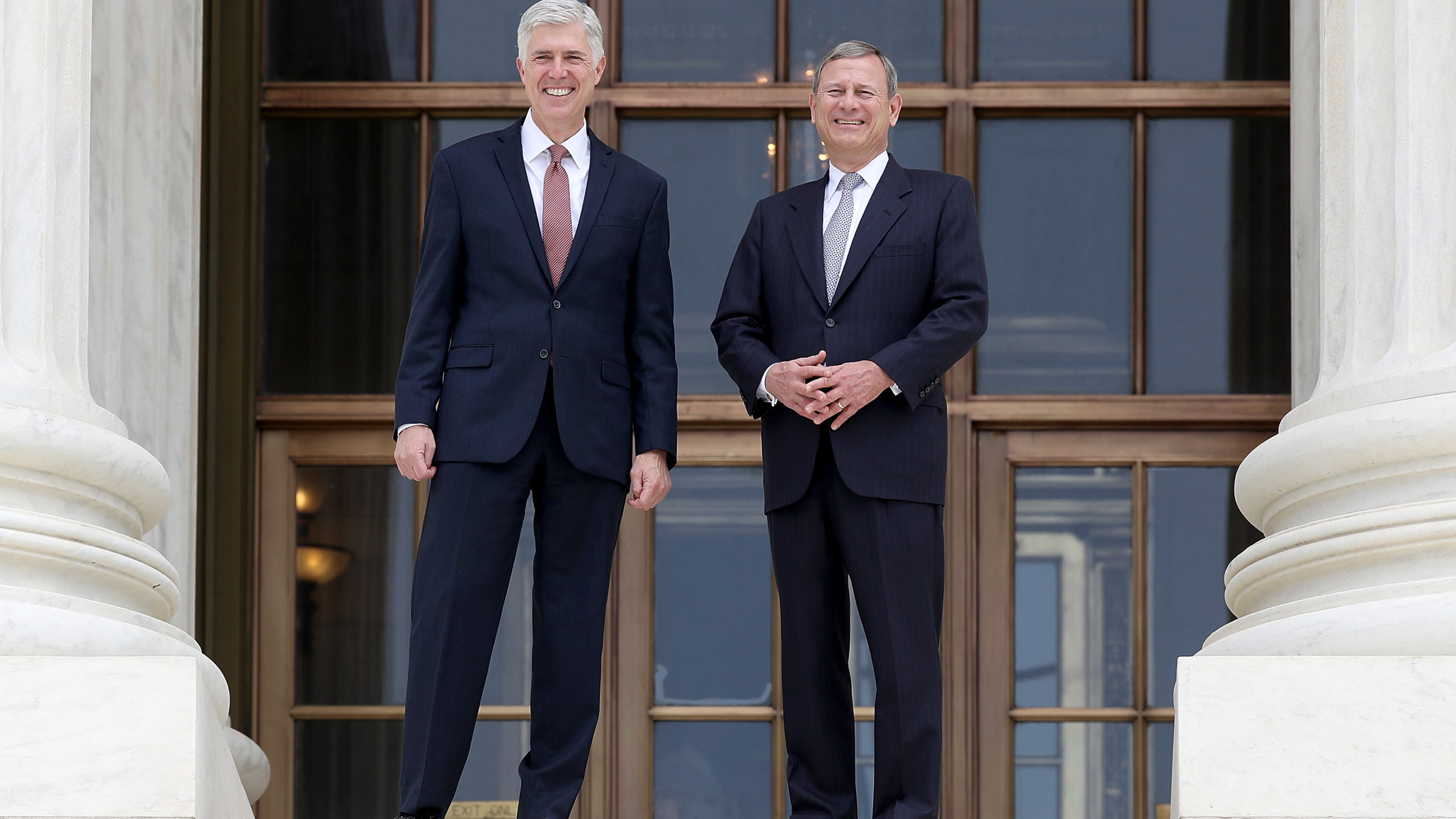
(Photo by Win McNamee/Getty Images)
The judicial circle jerk is striking because the decision was immediately and broadly met with condemnation, and not just from liberal commentators. The Times quotes William Baude, a law professor and former Roberts clerk, who called the opinion “strange” and “sprawling.” It cites Stephen McAllister, who clerked for Justice Clarence Thomas, who said the ruling was “certainly not really tied to the Constitution.” In The Atlantic, John Dean, the former White House Counsel who pleaded guilty to obstruction of justice over his role in the Watergate scandal, called Trump v. United States a “radical” ruling that would have “thrilled” Richard Nixon. Even among conservatives, Roberts and company were in their own insular, extremist world.
That is how the Federalist Society likes things to be. One of FedSoc’s functions, along with shepherding infant Reaganites to life-tenured sinecures on the federal bench, is to prevent ideological drift among conservative judges. The political science professor Amanda Hollis-Brusky has explained how the founders of the organization deliberately established a “counter-elite” that would keep judges from straying from their ideological roots as they spent more time on the bench. “The Federalist Society is a wonderful example of how powerful a judicial audience can be,” she told 5-4 in an interview published in February. Here, it had its intended effect: The conservative justices were persuaded enough of their own uprightness to block out everyone else.
In Trump v. United States, Roberts was performing for his like-minded audience of ideologues. He didn’t even consider that America wouldn’t like the show.
